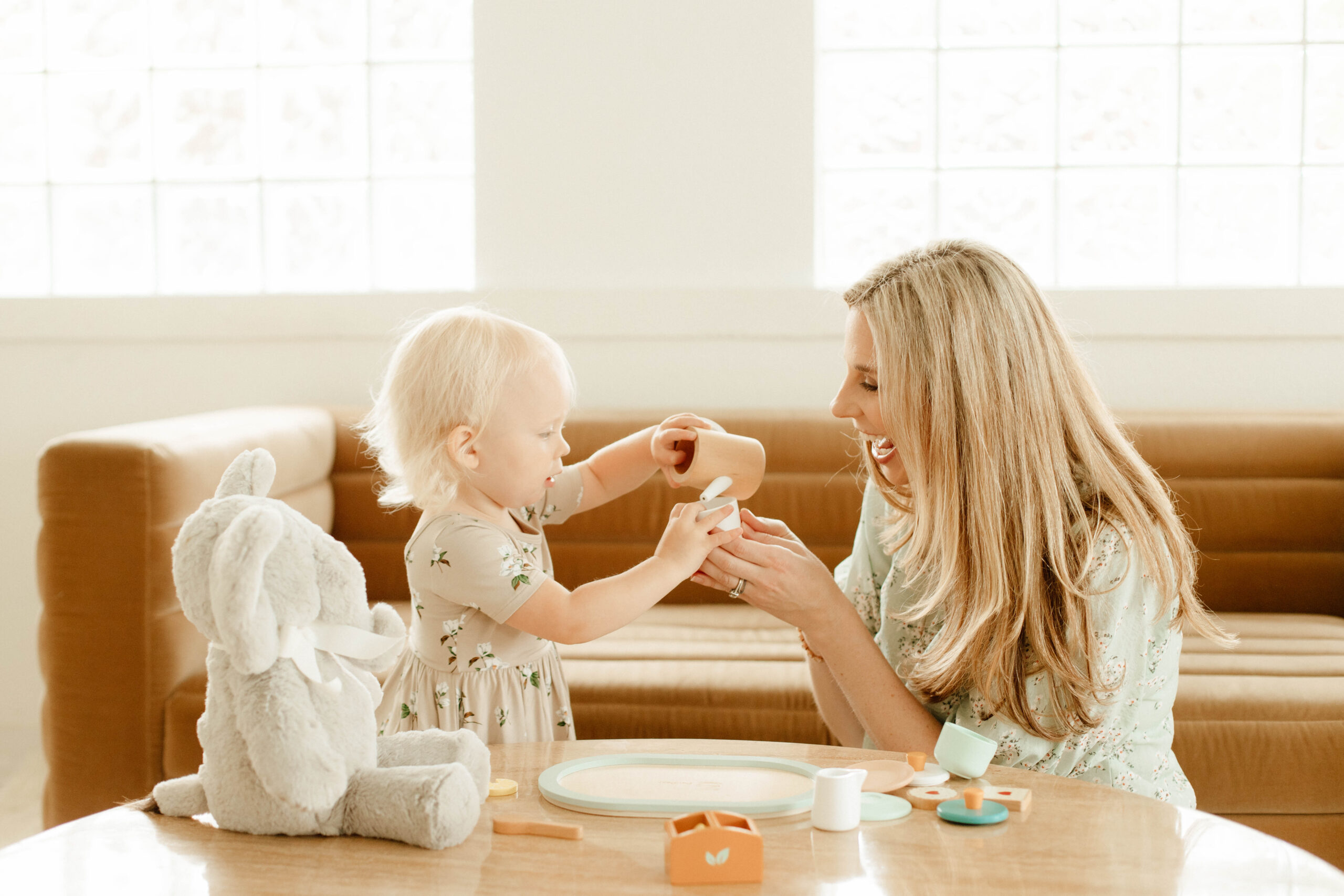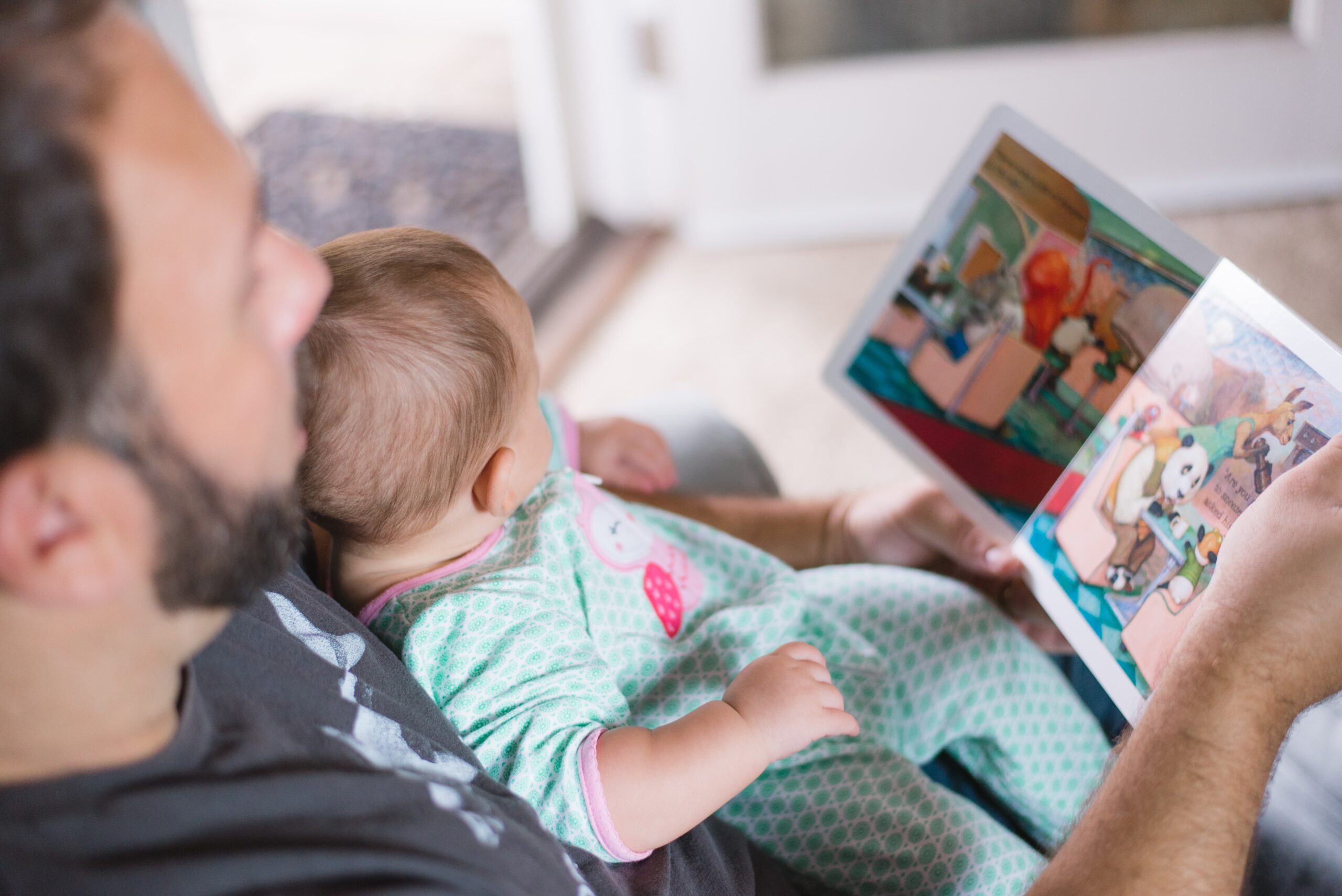
Batteries and Speech Development
Research shows that electronic toys are associated with decreased quality and quantity of language input compared to play with traditional toys and books. During interactions between parents and their children, electronic toys were associated with fewer adult words, fewer conversational turns, fewer parental responses, fewer productions of content-specific words, and over all the children vocalized less (Sosa, 2105)
In another study, Smimova (2011) explored a traditional character toy compared to an electronic/interactive toy (battery operated duck). In their study, researchers found the following:
- With the interactive toy, play was purely functional. Children switched the button on and off without exploring other ways to play with the toy. They disregarded all of the accessories (feeding dish, bath, etc.) that came with the electronic toy.
- Not a single statement was made on behalf of the toy. Children only commented on the toy’s actions or expressed their emotions (“Ouch, it bites!” “I will switch it on now,” etc.)
- There were no signs of the creation of any imaginary situations, despite the fact that the same children had been observed using simple storylines with other toys.
- Play storylines only happened with help from the adult or when the toy was switched off
BUT, I’m a mom too and I get it. Even though I insisted I would only have beautiful wooden toys once I had a baby, the reality is we have our own collection of toys that ding, ring, and sing.
So what are you supposed to do? In reality, letting your play with electronic toys probably isn’t going to hurt them in the long run, but if you want to decrease some of the stimulation, here are some ideas:

1.Remove the Batteries: You can always pop out the batteries. That way your decrease the stimulation and give your child opportunities to add their own sounds and words
2. Start a Toy Rotation: Implementing a toy rotation is a great way to make older toys new and exciting again, but rotating your toys can also help you be intentional about how many electronic toys are out at once.
3. Add in Language: One of things we know is that children (and adults) typically talk less when playing with electronic toys, but that doesn’t have to be the case. Make your words match your child’s actions such as saying “In” when they put a piece in or “Go!” when you turn it on.



One more thing about batteries and speech delays:
A lot of electronic toys tend to stress academic words like numbers and colors, but those words may not be meaningful to your child just yet. Add in power words during play such as “Open” and “Go!” We want functional words first!
Electronic toys probably won’t hurt your child’s speech development in moderation, but following your child’ s lead, responding to what they say, and providing good language models WILL help build your child’s speech and language skills. If you’re looking for specific strategies to help your late-talking toddler at home, check out my digital course for parents, The Late-Talker Course
References:
Sosa, A.V (2015) Association of the type of toy used during play with quality and quantity of parent-infant communication. JAMA Pediatrics. Published online December 23, 2015.
Smirnova, E. O. (2011). Character toys as psychological tools. International Journal of Early Years Education, 19, 35-43






